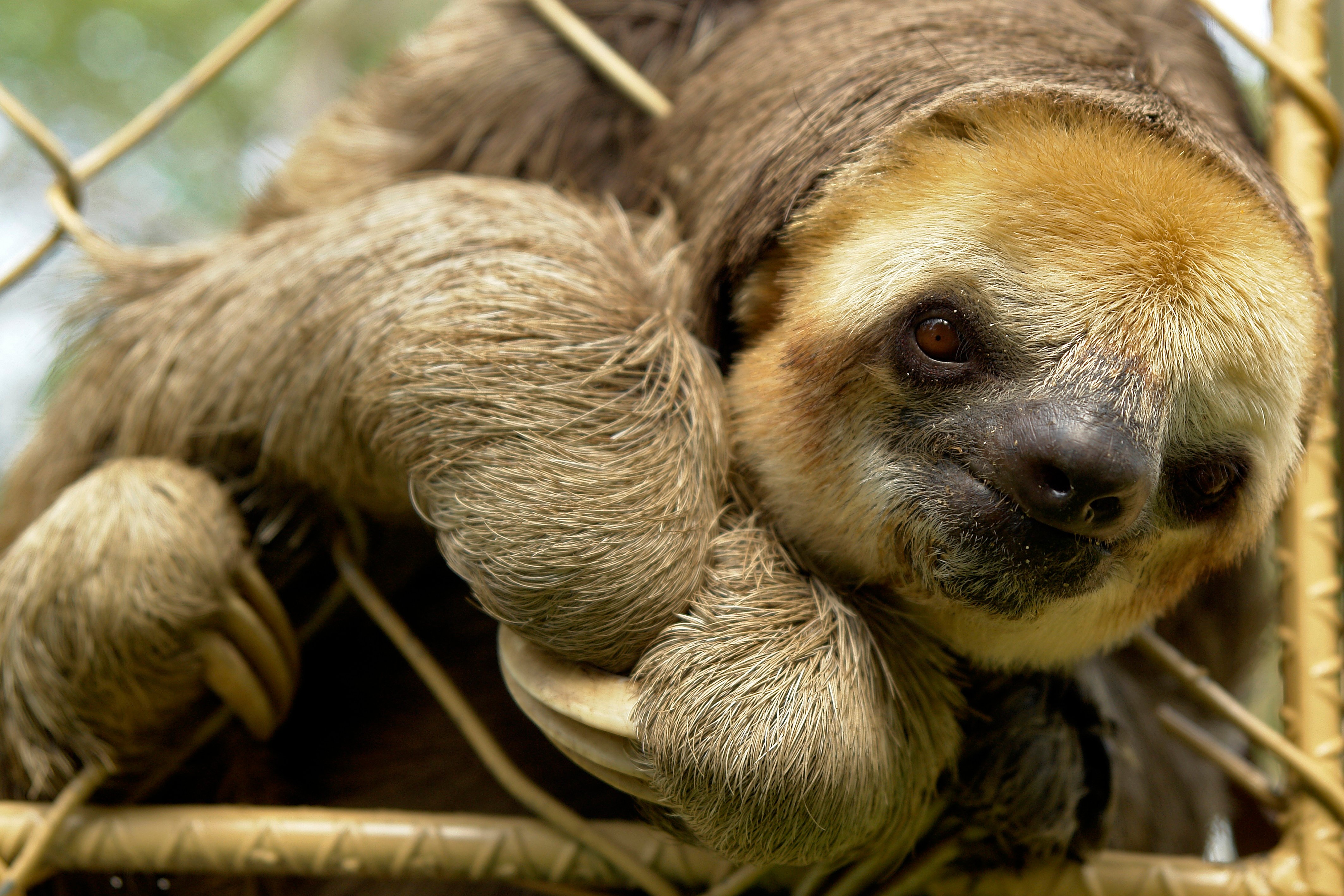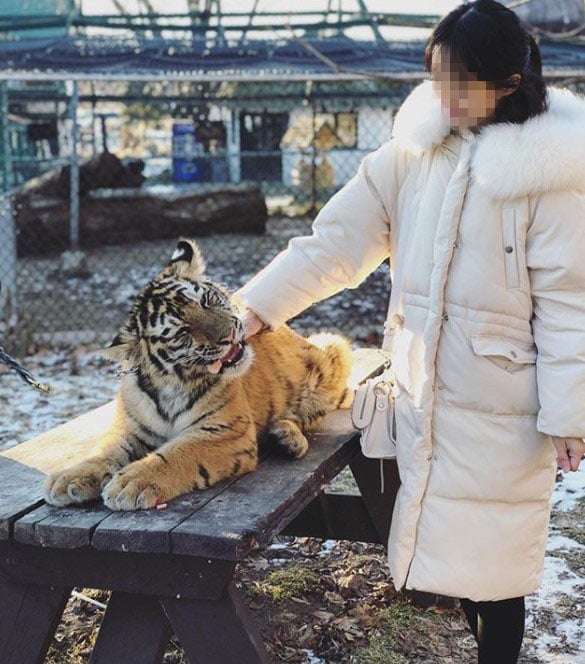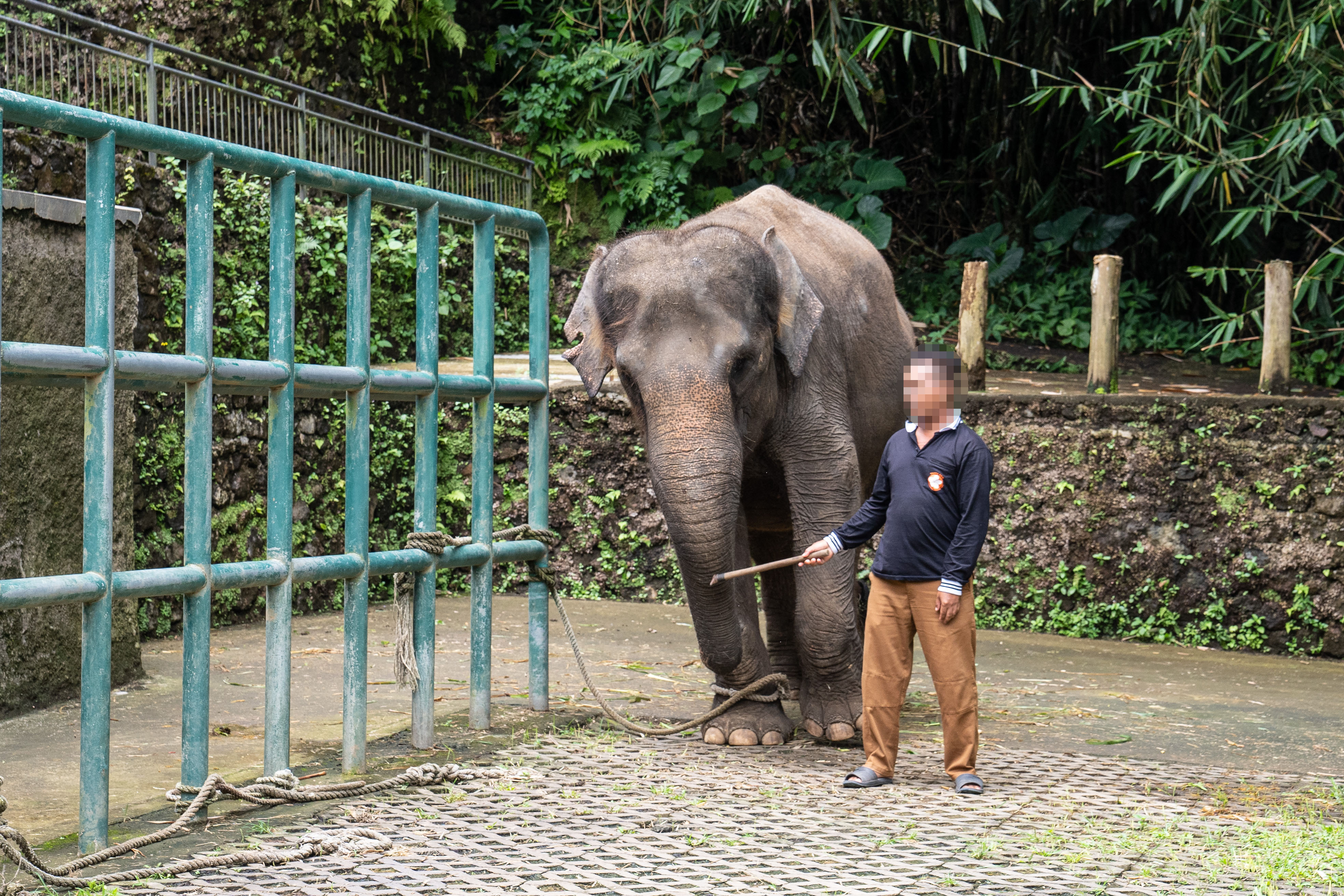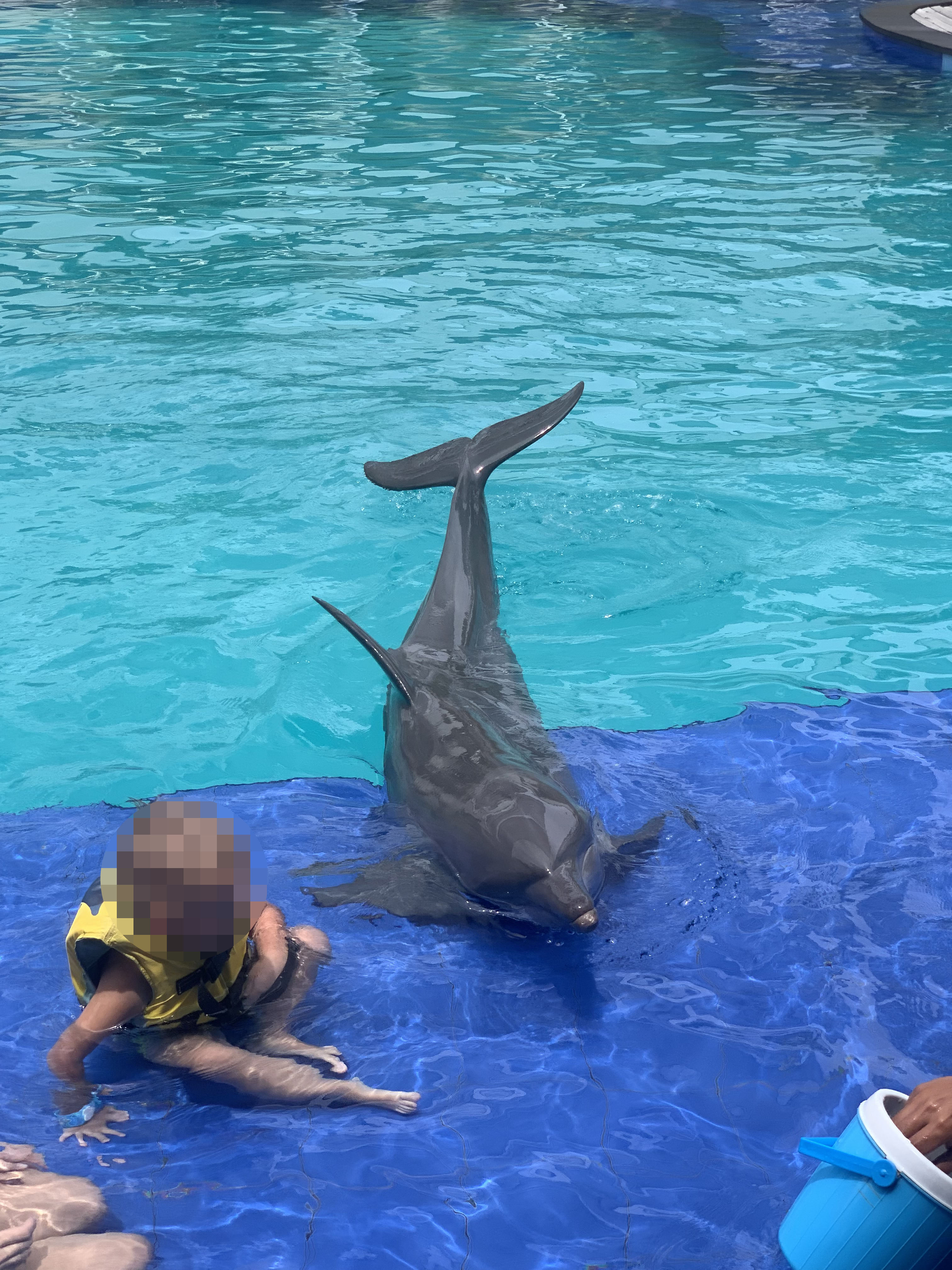
Wild animals retain their wild instincts even in captivity—and putting them in direct contact with tourists is dangerous and negligent.
World Animal Protection has been advocating for an end to exploitative wildlife experiences, such as tiger petting, elephant bathing, and swimming with dolphins. Not only do these experiences put profit over an animal’s well-being, but there are dangers the entertainment industry hides through deceptive marketing.
Throughout the years, animal protection organizations have been ringing the alarm bells on these dangers, and unfortunately, people continue to lose their lives over seemingly innocent interactions with wild animals.
In January 2025, a 22-year-old tragically lost her life while bathing elephants with her boyfriend in Thailand. While this tragedy is the first of 2025, approximately 240 others have died interacting with elephants over the past 12 years. In fact, one person is killed on average for each male elephant kept in captivity.
Here are a few reasons you should refuse direct contact interactions with wild animals for your own safety:
Physical Injuries
Wild animals, even when in captivity and “trained,” retain their natural instincts and defensive behaviors. Captivity often subjects these animals to stressful, loud, and overstimulating environments, which can bring these defensive behaviors out. For example:
Sloths

While they seem slow and harmless, sloths are equipped with sharp claws, a grip two times more powerful than humans, and extremely powerful jaws. A stressed or frightened sloth can cause deep lacerations or even break bones with their teeth. Their defensive response is often triggered by excessive handling, bright camera flashes, or loud tourist environments.
Big Cats (i.e., Tigers, Lions)

Tourists participating in tiger petting, big cat walks, or taking selfies with cubs often underestimate the strength and aggression these animals can display. Even cubs, who are often sedated for interactions, can lash out if they feel threatened or uncomfortable. There have been multiple incidents where tigers have attacked handlers or tourists due to sudden movement or noise.
Elephants

In elephant riding or bathing experiences, handlers often use tools like bullhooks or sharp prods to control these massive animals. Elephants, being intelligent and emotionally complex, can become aggressive if they feel pain, frustration, or fear. This has led to incidents where elephants have trampled or thrown riders, causing severe injuries or fatalities.
Dolphins

Not only incredibly intelligent, but powerful, dolphins have been known to bite, ram, and even kill people in captivity. Additionally, dolphins are muscular and agile swimmers—meaning swift movements can accidentally cause major damage to tourists interacting with them, even children. Orcas, the largest dolphin species, have only killed people in captivity, likely due to their psychosis brought on by boredom from captivity.
Zoonotic Disease Transmission
Wild animals are natural carriers of various diseases, many of which can be transmitted to humans (and vice versa, putting the animals’ health at risk). Direct contact, such as petting, feeding, or holding an animal, significantly increases the risk of zoonotic disease transmission. Of the zoonotic diseases found in human populations between 1940 and 2004, 72% came from wildlife origin. Some common examples include:
Salmonella
Many reptiles, such as turtles, snakes, and even bird species carry Salmonella bacteria on their skin, and handling these animals allows for the transfer of this bacteria.
Tuberculosis (TB)
Elephants in captivity have been found to carry TB, which can be transmitted to humans through close interaction, such as during elephant bathing, riding, or feeding sessions.
Parasites
Wild animals, especially those kept in unsanitary or poorly managed facilities, can carry parasites like fleas, ticks, and intestinal worms, which can easily transfer to humans.
False Sense of Safety
Tourists are often misled into believing that wild animals used for entertainment are "tame" or “domesticated.” However, no wild animal can ever be fully domesticated. These animals are conditioned—often through fear—to tolerate human interaction. Behind the scenes, many are subjected to mistreatment, sedatives, and harsh discipline to suppress their natural behaviors. This creates a dangerous illusion of safety, leaving tourists vulnerable to unexpected attacks. In fact, many contractual agreements (like those at SeaWorld) include these risks of injury—including death—to waive the venue of liability in cases where an injury or fatal incident occurs.
Backyard Zoos and Unregulated Facilities
Many wildlife interaction venues, such as backyard zoos, operate without proper safety measures or oversight, and staff members may lack the training needed to ensure the safety of both animals and visitors. Additionally, the use of tranquilizers to subdue animals is common in such facilities, which can lead to erratic and dangerous behavior once the drugs wear off.
The Safer Alternative: Wildlife Heritage Areas
World Animal Protection partnered with World Cetacean Alliance to create Wildlife Heritage Areas which highlight some of the highest-quality, responsible, and community-led wildlife watching in the world.
To be considered, each Wildlife Heritage Area undergoes an application process with specialized NGOs, wildlife experts, responsible tourism companies, and local communities. Each member must meet high standards of criteria, including respectful human-wildlife coexistence, cultural significance, responsible wildlife tourism, governance, and a management plan.
Plan Your Wildlife-Friendly Vacation
World Animal Protection works with global travel companies to implement animal-friendly policies ensuring no animals are harmed during tourist experiences. Companies such as Kodama Travel, Airbnb, Booking.com, and The Travel Corporation are just a few examples of companies that have implemented such policies and continue to work with our organization to update their listings.
If you have any concerns or questions about a particular venue, please feel free to contact us via email, and we’ll let you know if a venue is animal-friendly or one to steer clear of!
Looking for more wildlife-friendly travel tips? Visit our Wildlife-Friendly Travel Guide for more information.